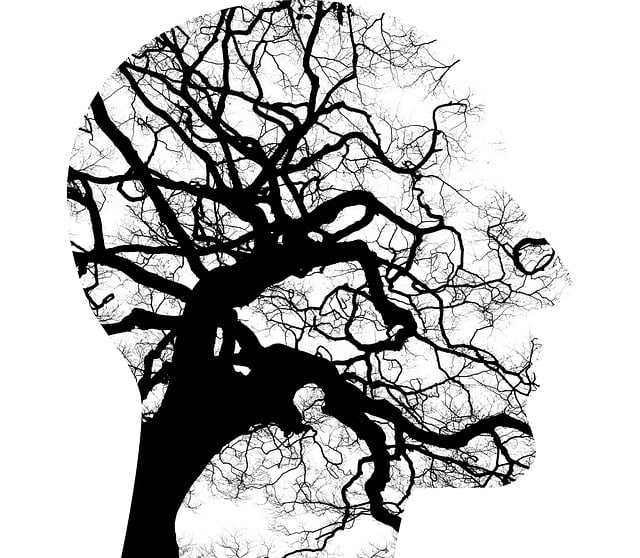Lakewood Mandarin Chinese Speaking Therapy offers culturally sensitive mental health care for the growing Mandarin-speaking community by providing therapy in their native language, addressing barriers and empowering clients with resilience and self-esteem. Their evaluation strategy combines quantitative (self-report, test scores) and qualitative (interviews, focus groups) methods to gain deep insights into program effectiveness and participant experiences, ensuring tailored services for diverse emotional needs, particularly in areas like depression prevention.
“Exploring Effective Mental Wellness Program Evaluation: A Comprehensive Guide. This article delves into innovative methods for assessing and measuring the impact of mental health initiatives, with a unique cultural focus on Lakewood Mandarin Chinese Speaking Therapy. We examine diverse evaluation techniques, from qualitative research methods to quantitative analysis, offering insights into how organizations can optimize their wellness programs. By understanding assessment tools and approaches, stakeholders can enhance service delivery and improve overall mental wellness outcomes.”
- Understanding Lakewood Mandarin Chinese Speaking Therapy: A Cultural Approach to Mental Health
- Assessment Techniques for Evaluating Wellness Programs
- Qualitative Research Methods in Mental Wellness Program Evaluation
- Quantitative Analysis and Metrics for Measuring Success
- Mixed-Methods Evaluations: Combining Qualitative and Quantitative Approaches
Understanding Lakewood Mandarin Chinese Speaking Therapy: A Cultural Approach to Mental Health

Lakewood Mandarin Chinese Speaking Therapy represents a unique and culturally sensitive approach to mental health services, tailored specifically to meet the needs of the growing Mandarin-speaking community. This therapeutic model recognizes the importance of addressing cultural barriers and promoting understanding between healthcare providers and patients from diverse ethnic backgrounds. By offering therapy in Mandarin Chinese, this program bridges the gap that often exists in mainstream mental health care, ensuring access to support for individuals who may face additional challenges due to language and cultural differences.
The primary focus of Lakewood Mandarin Chinese Speaking Therapy is on resilience building, targeting not only mental wellness but also self-esteem improvement. This therapeutic intervention aims to empower clients by providing a safe space where they can openly discuss their struggles, share experiences, and explore strategies for coping with life’s challenges. Through this cultural approach, healthcare provider cultural competency training becomes an integral part of the process, fostering deeper connections between therapists and clients and ultimately enhancing the overall effectiveness of mental health services.
Assessment Techniques for Evaluating Wellness Programs

Evaluating mental wellness programs requires a multifaceted approach to ensure their effectiveness. One key aspect is assessing the impact on participants’ well-being through various assessment techniques. These methods can include self-report questionnaires, where individuals reflect on their symptoms and overall satisfaction with the program. Such tools provide valuable insights into changes in anxiety, depression, and stress levels. Additionally, clinical interviews offer a deeper understanding of participants’ experiences, allowing therapists to gauge progress and tailor interventions as needed.
For example, at Lakewood Mandarin Chinese Speaking Therapy, assessment techniques go beyond basic questionnaires. They incorporate focused discussions on communication strategies, coping skills development, and mental health education programs design. This holistic evaluation ensures that the program not only addresses symptoms but also equips individuals with lasting tools for managing their mental health in a culturally sensitive manner, aligning with the unique needs of diverse communities.
Qualitative Research Methods in Mental Wellness Program Evaluation

Qualitative research methods play a pivotal role in evaluating mental wellness programs, offering insights into participants’ experiences and perceptions. Techniques such as interviews and focus groups allow for in-depth exploration of individuals’ journeys with mental health, including their interactions with specific programs like Lakewood Mandarin Chinese Speaking Therapy. Through open-ended questions, researchers can uncover nuanced understandings of the program’s effectiveness, unique challenges faced by participants, and potential areas for improvement. This approach is particularly valuable in diverse communities, where cultural considerations, such as language barriers, might impact traditional therapy methods.
For instance, studies employing qualitative research methods have delved into the experiences of ethnic minority groups participating in mental wellness programs. These investigations often reveal important findings related to stress reduction methods tailored to specific cultures and the role of community support in mitigating mental illness stigma. Moreover, they contribute to the development of more inclusive and culturally sensitive mental wellness coaching programs, ensuring that services are accessible and effective for all individuals, regardless of their background.
Quantitative Analysis and Metrics for Measuring Success

In evaluating the effectiveness of mental wellness programs like those offered by Lakewood Mandarin Chinese Speaking Therapy, quantitative analysis plays a pivotal role. This method involves the use of numerical data and statistical techniques to gauge progress and measure success. By collecting and analyzing quantifiable metrics, such as pre-post test scores, attendance rates, and participant feedback through surveys, therapists can gain valuable insights into program performance. For instance, tracking improvements in emotional regulation skills or social interaction capabilities over time allows for a clear understanding of the program’s impact on individuals’ mental health.
Specific metrics may include reductions in anxiety or depression symptoms, enhanced emotional expression and coping mechanisms, and improved social skills training outcomes. These quantitative measures are essential components in designing evidence-based Mental Health Education Programs. For example, by focusing on areas like Emotional Regulation, Social Skills Training, and overall program satisfaction, therapists can tailor interventions to better meet the unique needs of their clients, ensuring continuous improvement in mental wellness support, as seen in the effective implementation of Lakewood Mandarin Chinese Speaking Therapy services.
Mixed-Methods Evaluations: Combining Qualitative and Quantitative Approaches

In evaluating mental wellness programs like those offered at Lakewood Mandarin Chinese Speaking Therapy, mixed-methods evaluations provide a comprehensive approach by combining both qualitative and quantitative data collection techniques. This dual strategy allows for a deeper understanding of program effectiveness. For instance, quantitative methods such as surveys can gauge participants’ overall satisfaction and changes in symptoms like stress or depression over time. On the other hand, qualitative methods including interviews or focus groups enable participants to share their personal experiences, emotional healing processes, and insights into what aspects of the program were most beneficial.
By integrating these perspectives, organizations like Stress Management Workshops can gain valuable insights into not only the statistical outcomes but also the nuanced, individual-level effects of their programs. This holistic evaluation is particularly relevant when addressing sensitive topics such as depression prevention, ensuring that services are tailored to meet the diverse emotional needs of participants.
The evaluation of mental wellness programs is a multifaceted process, as highlighted by this article’s exploration of various methods. From understanding cultural approaches like Lakewood Mandarin Chinese Speaking Therapy to employing qualitative and quantitative research techniques, each method offers unique insights into program effectiveness. By combining these strategies, such as mixed-methods evaluations, we gain a comprehensive view of mental wellness interventions, ensuring their success and adaptability to diverse populations. This holistic evaluation is crucial for enhancing and refining programs, ultimately fostering better mental health outcomes.









